All-Noodle Artisan Marugame udon restaurant operating in Tokyo, only 30 percent pass test
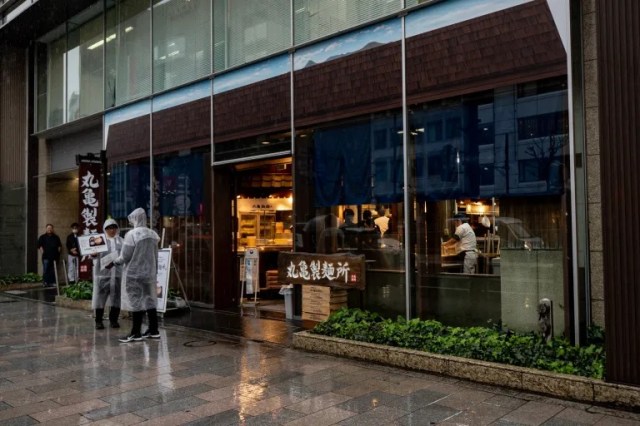
Marugame has over 800 branches in Japan, but right now this is the best one.
Rain was falling in Tokyo’s Kanda neighborhood, and our Japanese-language reporter Tasuku Egawa was hungry. While thinking of what he wanted to eat, he spotted a branch of udon noodle restaurant chain Marugame.
Wait, something was strange. The sign didn’t say 丸亀製麺, meaning “Marugame Noodles,” like it does at the chain’s regular branches. Instead, it said 丸亀製麺所, or “Marugame Noodle-making Place.”
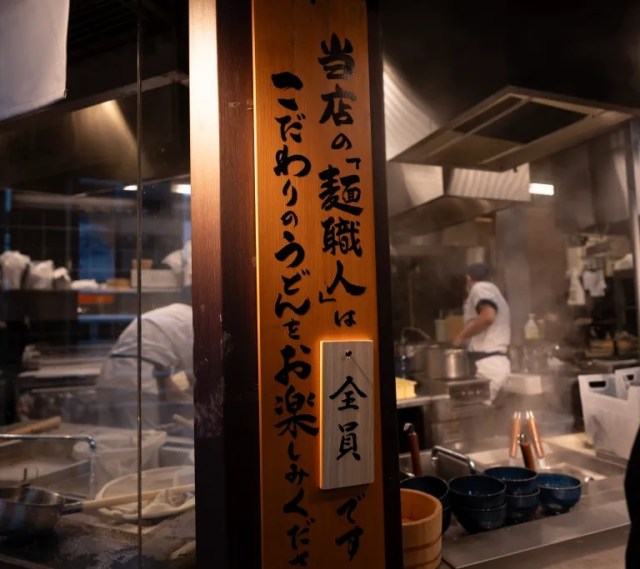
As for what makes this branch special right now, it’s that all members of the staff are certified by Marugame as Noodle Artisans, or “Menshokunin,” as they’re called within the company.
In order to become Noodle Artisans, the employees must pass a test, proving their skills as udon specialists. Only around 30 percent of the applicants pass, which is around the same percentage that pass the entrance exam to the University of Tokyo, Japan’s most prestigious institute of higher learning.
At Marugame branches, you can spot the Noodle Artisans by their navy blue uniform collar, and sure enough, every employee in this branch has one! They’re all aces of their profession.
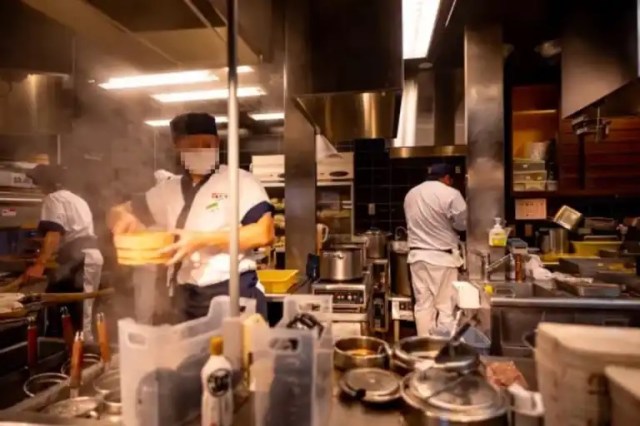
On the day Tasuku stopped by the restaurant, there were Noodle Artisans who’d come from Hokkaido and Hiroshima working. Watching them forming the noodles by hand, Tasuku could see that their movements were sharper and more precise than what he’s used to seeing at other Marugame branches. The Noodle Artisans seem to be on a whole other level. In technical terms, he says you could think of them as the ultimate form of Marugame noodle makers.
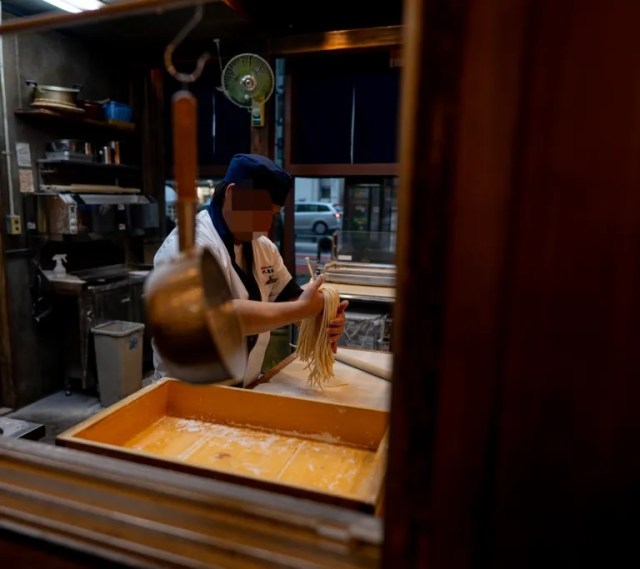
As of the end of February, 2024, Marugame has 838 branches in Japan. Out of all of them, this branch, with its all-Noodle Artisans, should be the most delicious of them all, so Tasuku was glad he decided to come in. After looking over the menu, he decided to order the Sanshu no Kiki Udon, which gives you three bowls of different kinds of udon for 500 yen (US$3.35).
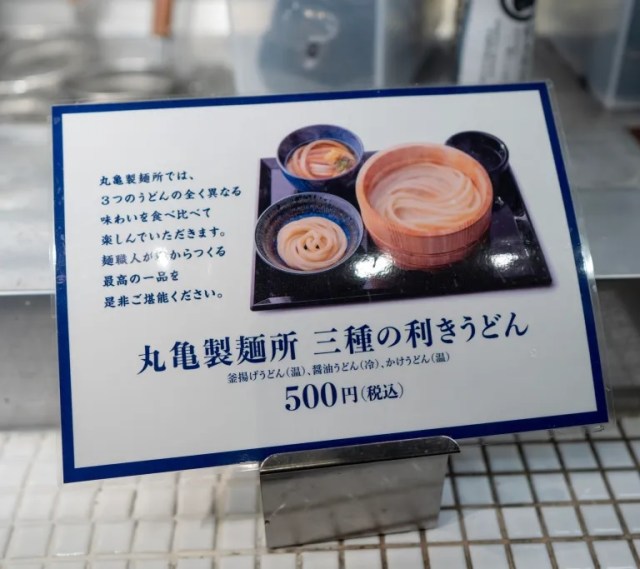
The set includes kameage udon, where the noodles are served in a bucket-like bowl. It also has kake udon, served in a bonito stock broth, and shoyu udon, cold udon served dry with a soy sauce dip to dunk them in before each bite.
Also, since a fresh batch of tempura had just been fried up, he added three pieces to his meal.
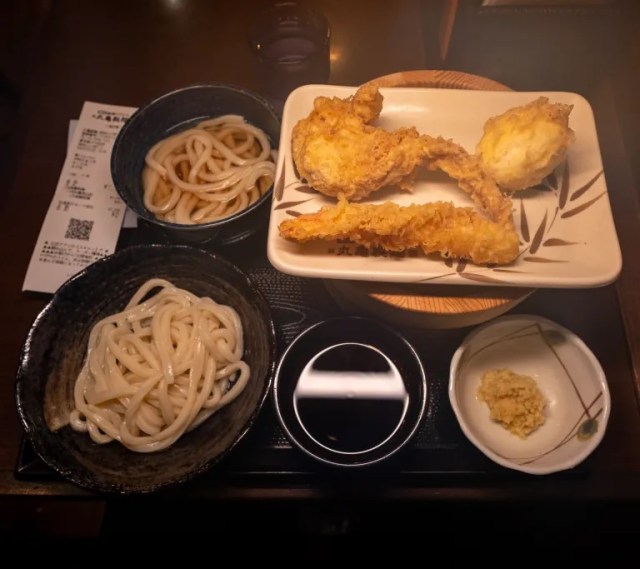
His first photo of his food didn’t turn out too great, because of all the steam rising of the noodles and fogging up his camera lens. After wiping it off, though, the shot came out much clearer and delicious-looking.
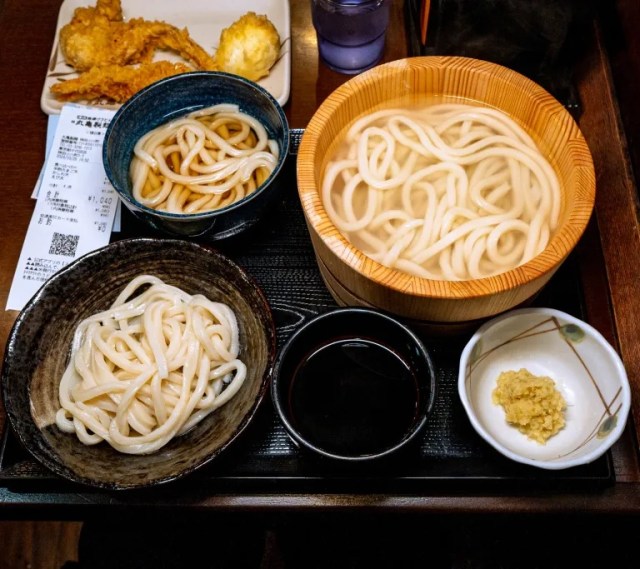
First he tried the kameage udon.
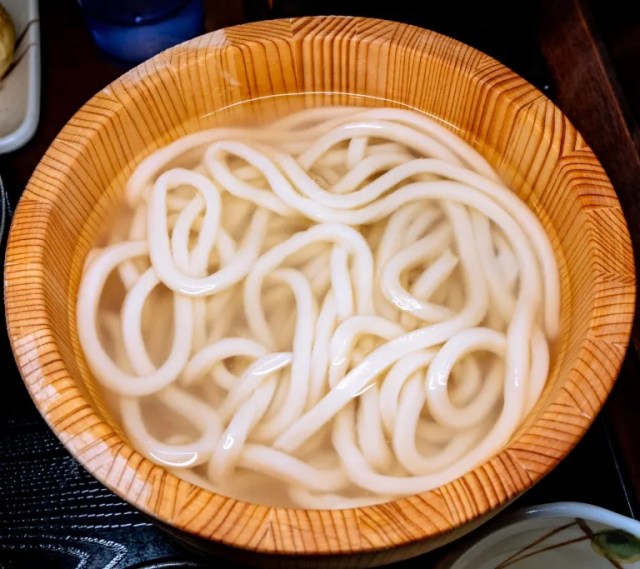
Oh, the noodles were certainly nice and chewy, and very delicious! The noodles here aren’t shocked in cold water after cooking to tighten them up. They tasted even better than they do at regular Marugame branches, so it felt like there really is something to this all-Noodle Artisan arrangement.
Next, the kake udon.
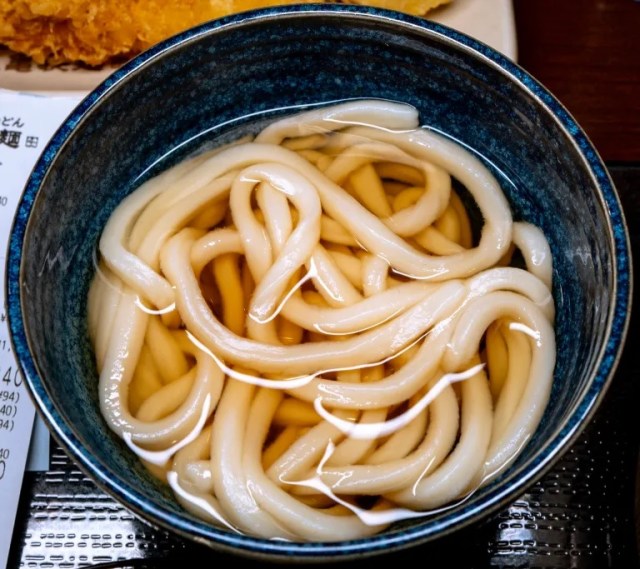
These had a distinctly different texture from the kameage udon. Ah, it must be because they’re shocked in cold water, Tasuku thought. It really does make a big difference, he felt. It was as a big a difference to him as between eating spaghetti and linguini.
And last, he tried the shoyu udon, which is only available at select Marugame branches.
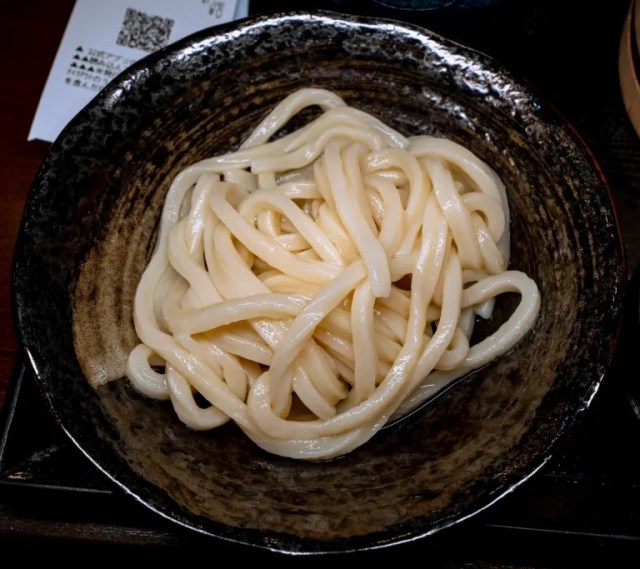
Their texture is very slippery, with a firm outer layer but chewy center! It must be because they are shocked in cold water after cooking, and still chilled when they’re served. Tasuku was newly impressed by the versatility of udon.
Because udon is a simple dish, before his meal Tasuku expected all three types of them to feel very similar. Eating them one after another in succession like this, though, the differences were far beyond what he had imagined. It was very intriguing, almost like he’d gone to an udon theme park, or had conducted a fun science experiment!
Tasuku felt very satisfied and privileged to have been able to eat udon made by a team entirely of Noodle Artisans, and had a sensation that his appreciation of udon had risen to a higher level. It had been a good meal and a good experience, and he recommends it to anyone who’s looking for a place to eat in this part of Tokyo.
Editor’s note: Tasuku either didn’t notice or was too deep in his food coma to mention, but the all-Noodle Artisan staff at this branch of Marugame is a limited-time event that runs until March 31, after which the Artisans will return to their respective regional branches.
Restaurant information
Marugame Seimen (Kanda Ogawamachi branch) / 丸亀製麺神田小川町
Address: Tokyo-to, Chiyoda-ku, Kanda Ogawamachi 3-3
東京都千代田区神田小川町3丁目3
Open 11 a.m.-9 p.m. (Monday-Thursday), 11 a.m.-8 p.m. (Friday-Saturday)
Photos © SoraNews24
● Want to hear about SoraNews24’s latest articles as soon as they’re published? Follow us on Facebook and Twitter!
Credit:

0 comments: